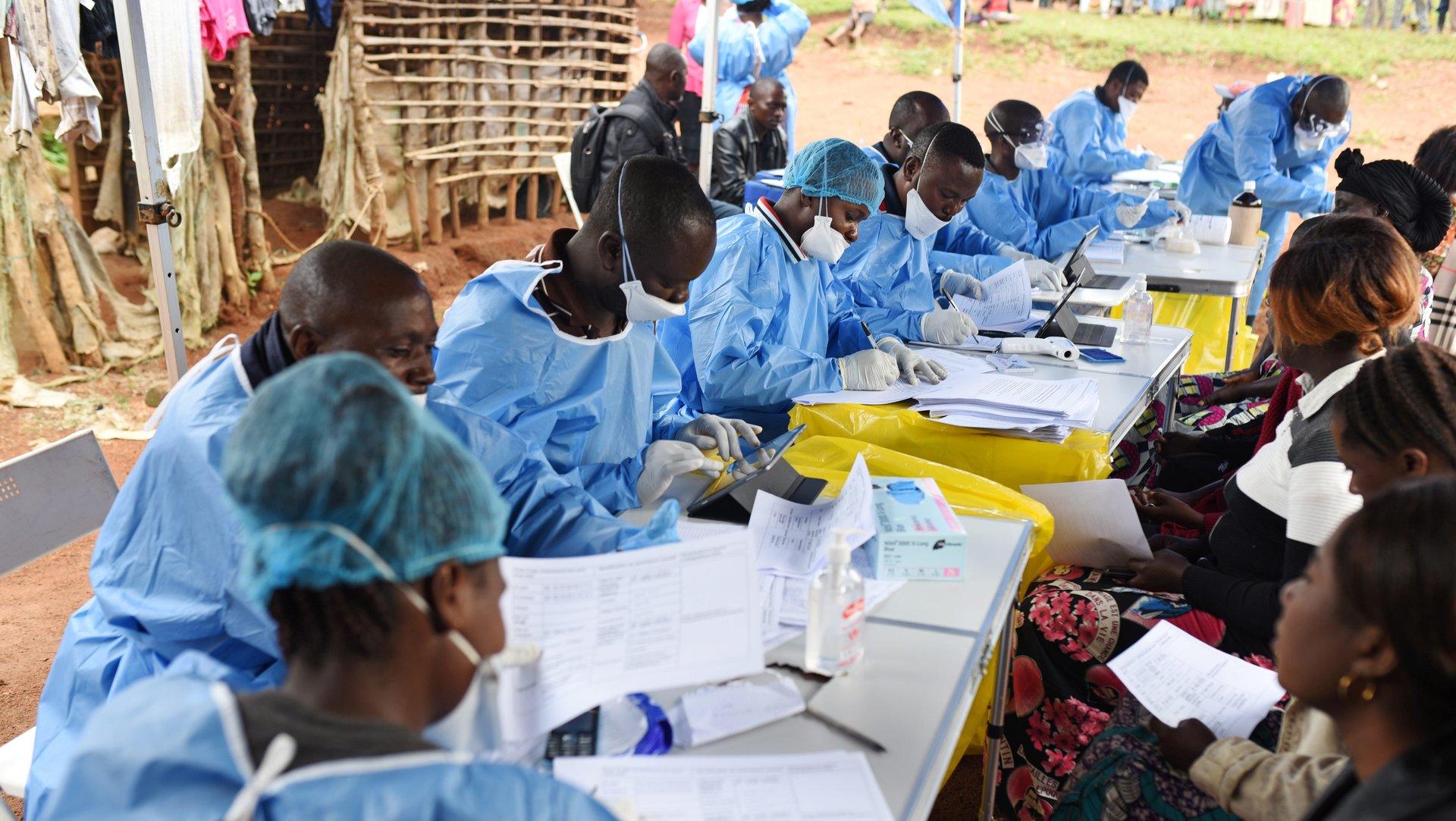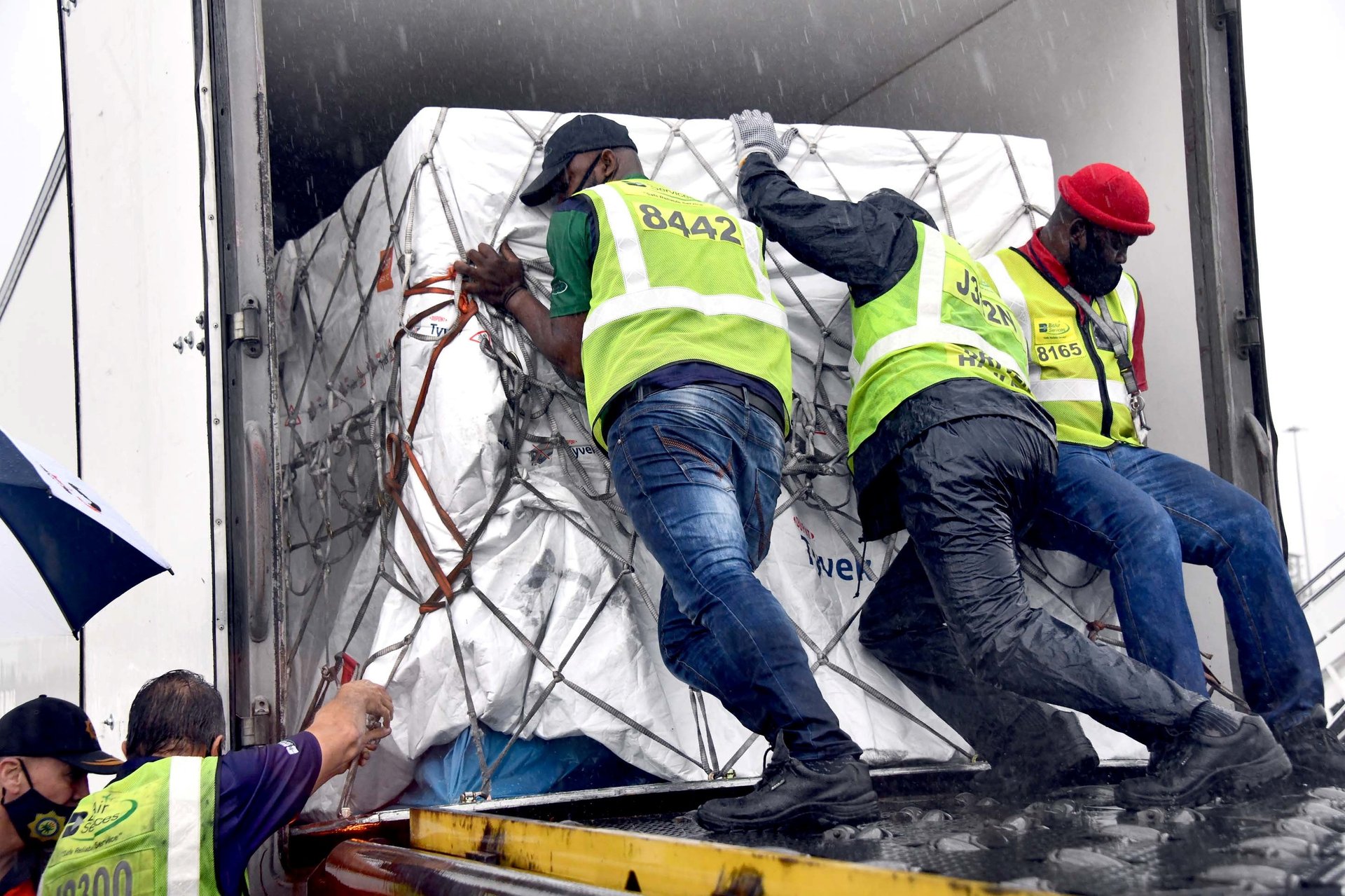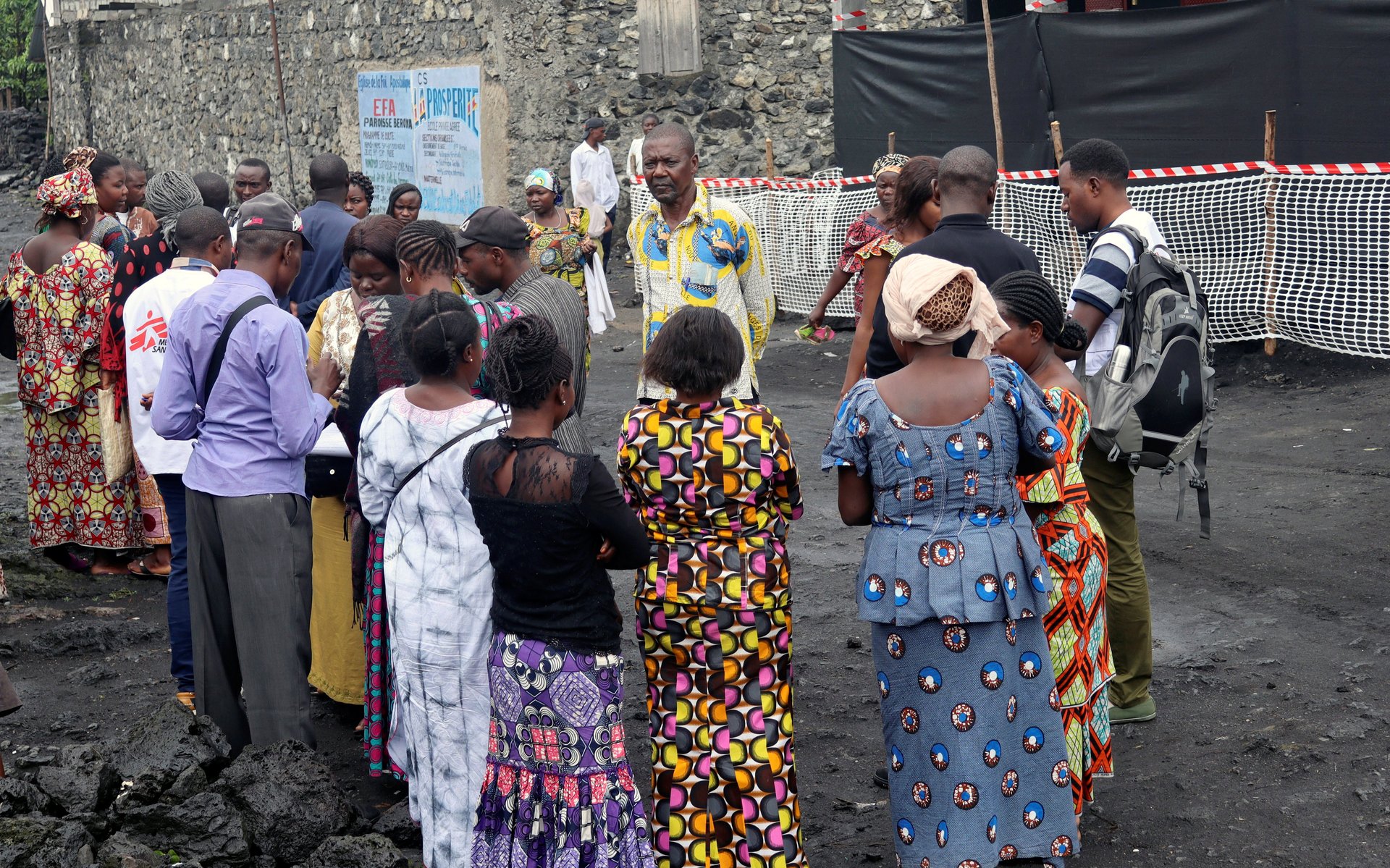African countries have an advantage in rolling out Covid-19 vaccines
Concerns have been raised that African countries may struggle to effectively deploy Covid-19 vaccines at the unprecedented scale needed to counter the coronavirus pandemic.


Concerns have been raised that African countries may struggle to effectively deploy Covid-19 vaccines at the unprecedented scale needed to counter the coronavirus pandemic.
Yet Africa is one of the most experienced regions in the world in dealing with disease outbreaks. It has successfully carried out several, sudden large-scale vaccine introductions and vaccinations in crowded urban centers and remote rural communities. These experiences and infrastructure will be a major asset in Covid-19 vaccine deployment in the continent.

African countries have routine immunization systems that have been developed over the years with support from organizations such as Gavi, the Vaccine Alliance, and UNICEF. These systems have been successfully used each year to administer vaccines to more than 25 million children in West and Central Africa alone—many of which live in hard-to-reach communities. There have also been several successful introductions of new vaccines in recent years, as the continent has dealt with infectious disease outbreaks such as Ebola, yellow fever, cholera, polio, and Lassa fever.
Large scale vaccinations have been carried out successfully even amidst the Covid-19 pandemic. In November last year, more than 3.3 million children were vaccinated in 91 districts in a majority of Chad against a rare vaccine-derived poliovirus (different from the wild poliovirus strain). The World Health Organization referred to the operation as “one of the largest of its kind in the African region this year.”
The challenges are enormous, from obtaining supply to overcoming hesitancy to reaching people in conflict zones. But the continent’s experience in delivering vaccines to the last mile`—with vaccinators walking for hours, crossing streams on foot, and using horses and camels to reach communities—cannot be discounted.
“The scale of this project is unprecedented,” says Professor Francois Venter, a former advisor on Covid-19 to the South African government. But, “Africa has experience in suddenly having to vaccinate large numbers of adults,” Venter says. “The world should be asking for pointers.”
A successful battle against wild poliovirus
One of Africa’s most celebrated vaccination efforts was the eradication of wild poliovirus, four years after the WHO declared the disease a global public health risk requiring a coordinated international response in 2012.
This campaign involved the introduction of the new Inactivated Polio Vaccine (IPV) in countries with the most polio risks, including Cameroon, Kenya, and Nigeria.
In 2014, the wild poliovirus was eradicated from all African countries, except Nigeria. The country reported its last case in 2016, in a community in the north-east of the country—the epicenter of Boko Haram insurgency. Nigeria mobilized frontline workers who managed to navigate the conflict areas to deliver vaccines to these communities and finally eradicate the virus.
“The country has learned a great deal on planning for vaccination campaigns,” says Dr. Richard Mihigo, Coordinator for Immunization & Vaccines Development Programmes for WHO Africa. “There is a robust network that was established by the polio program to reach, even in a very insecure and remote area, all the children that were eligible for vaccination. These are the types of experience that are going to be critical when it comes to Covid-19 vaccine deployment.”
Despite having limited resources compared to other regions, campaigns like the ones against poliovirus and Ebola have given countries valuable experience in the emergency delivery of vaccines under difficult and complex environments. Using a wide range of innovations and strategies, such as a solar-powered mobile vaccine delivery points for sites with limited electricity, vaccinators have been able to establish effective logistic channels. They have also led efforts to build trust and collaboration between healthcare workers, traditional and religious leaders, and community mobilizers.

This work has gone some way in overcoming vaccine hesitancy. In a recent survey, 79% of respondents from 15 African countries said they would take a Covid-19 vaccine. Even the most hesitant country, the DRC, had a greater percentage of people willing to take the vaccine (59%) than the percentage of respondents to a separate US survey who said they would do so. Though more effort is required in Africa to combat hesitancy, healthcare workers in the continent already have the experience to tackle it.
Also, while the US only recently adopted the strategy of using the military for logistic support during Covid-19 vaccination, the approach is not new to some African countries. Sierra Leone and Liberia used the military to provide essential support to healthcare workers during the Ebola crisis in 2014. In 2016, Nigeria leveraged existing security structures to deliver polio immunization services., while Angola’s Army Health Services (AAHS) have been fully involved for the past 20 years providing helicopters and trucks for immunization services.
Innovation and ingenuity in reaching communities
In recent years, healthcare workers have been able to successfully introduce Merck’s Ebola vaccine, which has to be stored at about -70°C (-94°F), in the DRC, South Sudan, Uganda, Rwanda, and Burundi. The vaccine was deployed against a 2019 outbreak in North Kivu, an area with active armed conflict that disrupted many emergency efforts. Still vaccinators reached out to remote communities, some of which were often only accessible by boat or helicopter, to reduce the risk of getting the disease to 0.017%.
Despite Covid-19 restrictions, health officials were able to successfully vaccine about 40,000 people against Ebola last year in Equateur, using new innovations such as ARKTEK freezers—portable containers that can keep vaccines at ultracold temperatures in the field for up to a week.
Regardless of which vaccine a country is using, from Pfizer’s shot, which needs to be stored at -70°C, to AstraZeneca’s, which can be stored at 2 to 8°C (35-46°F), cold chain infrastructure will be critical.
The African Centres for Disease Control has provided technical support on vaccine deployment, and advised countries to use an urban-centered approach, in which the ultra-cold storage freezers are installed in a few points around a capital city. This strategy is based on the fact that reports of Covid-19 cases across the continent tend to be concentrated in populated urban areas where there is more infrastructure to support ultra-cold storage facilities.
The vaccine cold chain capacity globally needs to be expanded and other critical logistics put in place to accommodate the present scale of vaccination, especially in the rural areas. Many African countries have made considerable efforts to improve their immunization system with support from the WHO, UNICEF, and Gavi. Innovations such as solar powered cold-chain fridges and other logistics needed for vaccination in rural areas are coming to the fore.
In 2020 alone, over 104 disease outbreaks were recorded in sub-Saharan Africa. The agility of Africa’s scientists in dealing with infectious diseases will undoubtedly be an asset. Already the work of South African scientists in identifying a local variant of the disease has been pivotal in tracking how the coronavirus pandemic is advancing.
Africa has the knowledge and experience to successfully deploy the vaccine. Now it needs the investment.